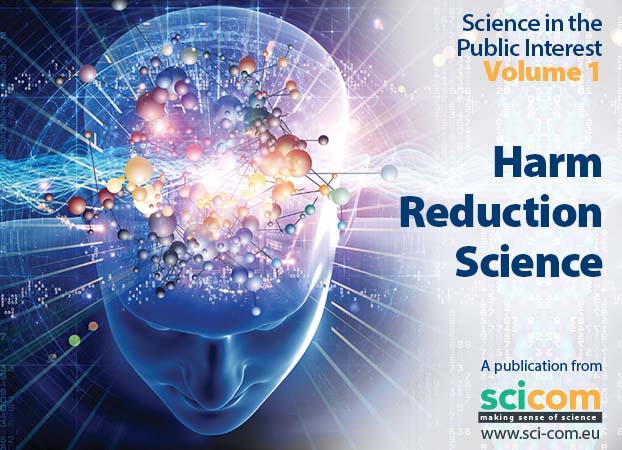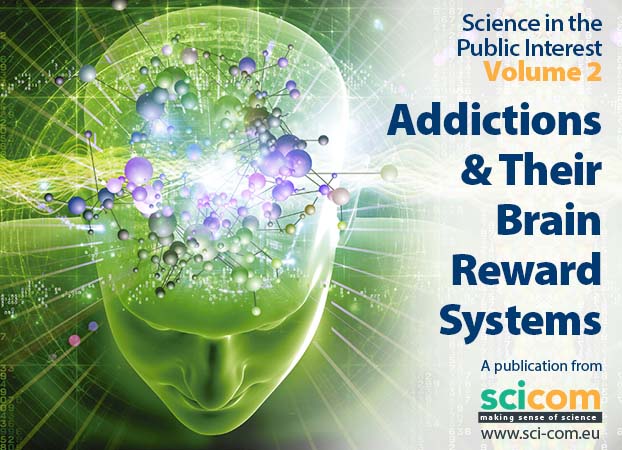World Science Forum 2022, Cape Town, South Africa
Cape Town International Convention Centre
https://worldscienceforum.org/programme
09h00 – 11h00, Monday 5 December, 2022.
Abstract:
This session unites leading medical, policy and civil society experts to examine the late Kofi Annan’s statement that “drugs have harmed many people, but bad government policies have harmed many more”. Its focus is to weigh-up the ethics of intervening in the lives of addicted and non-addicted users of licit and illicit drugs, brought sharply into focus during Covid19.
Out of the 49 Sub-Sahara African countries, only 16 have data on injecting drug use. The most recent estimates show that there are over 52 million cannabis, 6 million amphetamine-type stimulant (ATS), 3 million cocaine, 2 million opioid and 1.5 million ecstasy (MDMA) users in Africa today. Yet, strict drug laws have escalated public health crises including HIV, hepatitis C and tuberculosis epidemics, while contributing to the drug-related deaths of 585,000 worldwide. For example, among the 2.3 million People Who Inject Drugs identified in Sub-Saharan Africa, 564,000 are living with HIV.
While illicit drugs grab the headlines, not all drugs are treated equally. Legal drugs such as tobacco kills half its users, potentially 1 billion people alive today, while alcohol is predicted to kill half a billion. Policies on advertising, taxation, jobs, sectoral interests, culture and civil liberties all come into play. The panel will examine if the views of African scientists are taken seriously by policymakers inside Africa, let alone in most places of the world.
Lessons learned from the pro and anti-arguments made during South Africa’s 2020/21 prohibition of nicotine and alcohol sales will also be spotlighted. The country stood largely alone in its blanket ban logic with considerable media attention. Yet, health officials versus struggling retailers worldwide brings into sharp focus how societies both professes intolerance for the use of ‘drugs’, while providing and cherishing the social settings that enable and make legitimate their use. The panel will critique different approaches.
An important part of the discussion will be weighing-up how lawmakers must navigate between the rights and responsibilities of individuals to look after themselves and the rights and responsibilities of States to look after their citizens, provide security and a milieu in which to live a satisfying life. A key assessment will be to evaluate if robust ethical advice is being adequately considered to counter-balance public health imperatives. Have fundamental principles of autonomy, human dignity, freedom, equality and solidarity been forced to give way? Further issues to be debated include concepts of democracy and the rule of law, the influence of religion and the urgent need for harm reduction science to be universally applied.
The collective aim is to boost understanding of how power operates in African science and policymaking, as we explore why evidence plus dialogue rarely equals good decisions and laws. Recommendations will be given on what can be done better to get the intervention balance right.
 |
 |
Moderator: Mandy Smallhorne (South Africa), President, South African Science Journalists’ Association (SASJA) & Vice-President, World Federation of Science Journalists (WFSJ). |
 |
 |
Speaker & Co-organiser: Professor Julian Kinderlerer (South Africa): Past President of the European Group on Ethics in Science & New Technologies (EGE) reporting to the European Commission & Parliament; Emeritus Professor of Intellectual Property Law, UCT. The Ethics of Intervening in the Lives of Others: Implications for Policy. |
 |
 |
Speaker & Co-organiser: Shaun Shelly (South Africa): Policy, Advocacy & Human Rights Manager, TBHIVCARE; Founder, SA Drug Policy Week. Understanding What’s at Play When Evidence-Based Policy-Making Confronts Policy-Biased Evidence-Making Across Africa. |
 |
 |
Speaker: Professor Thomas Hartung (Germany): Director, Centre for Alternatives to Animal Testing (CAAT) & Professor, Evidence-based Toxicology, Department of Molecular Microbiology & Immunology, Johns Hopkins University, Bloomberg School of Medicine. Science as a Lifesaver in Harms Caused by Drugs, Alcohol & Tobacco. |
 |
 |
Speaker: Professor Morgan Chetty (South Africa): Visiting Professor at the Durban University of Technology. Understanding Access to Quality Healthcare & Patient-Centred Care, Particularly for the Poor: Towards a Pan-African Charter on Harm Reduction & Global Health. |
 |
 |
Speaker: Professor Lena Smirnova (Belarus): Assistant Professor, Department of Environmental Health & Engineering, Johns Hopkins University, Bloomberg School of Medicine. Understanding the Brain: Developmental Neurotoxicology & Gene Environmental Interactions. |
 |
 |
Speaker: Professor David Budtz Pedersen (Denmark): Professor of Science Communication and Director of the Humanomics Research Centre, Aalborg University, Copenhagen. Understanding the Most Unscientific Thing of All: People & Their Lifestyle Choices. |
 |
 |
Discussant: Professor Mbulaheni Simon Nemutandani (South Africa): President, The Health Professionals Council of South Africa (HPCSA). |





